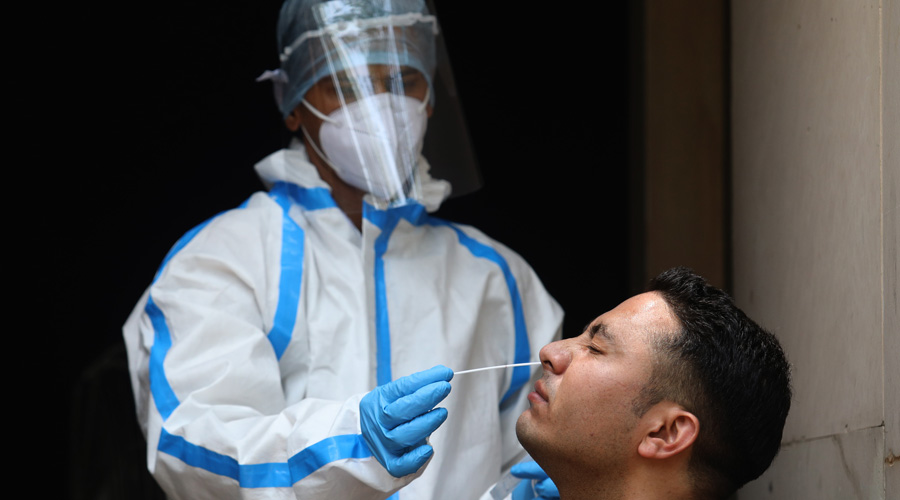The world surpassed 400 million known coronavirus cases on Tuesday, according to the Center for Systems Science and Engineering at Johns Hopkins University, just one month after reaching 300 million.
It is a staggering increase driven by the highly transmissible omicron variant as governments and individuals worldwide wrestle with how to confront the next stage of the pandemic.
It took more than a year for the world to reach 100 million confirmed infections: The first cases were identified in late 2019, and the 100 millionth in January 2021. It took only seven months to double that number, and now six months to double it again. Daily case counts have begun to decline, but there have been an average of more than 2.7 million infections reported every day.
The actual number of cases is undoubtedly higher, and probably drastically so. Many at-home rapid test results are never officially reported, and not all infected people get tested because they may lack access, have no symptoms or choose not to.
As the virus has mutated, almost five billion people have received at least one dose of a coronavirus vaccine, and research indicates that vaccines still offer protection against the worst outcomes. The current, dominant form of the virus — omicron — is less likely to lead to hospitalisation or death, so case counts on their own have become less useful as a metric, at least in places with higher rates of vaccination or prior infection.
In New York City, for example, cases peaked 541 per cent higher this winter than last, but deaths rose much less, peaking 44 per cent higher than last winter. But scientists have cautioned that protection against infection may wane over time, and future variants may be better able to sidestep our defenses.
Still, many governments have loosened restrictions as omicron-fuelled surges in many places have declined. Australia will soon re-open its borders to vaccinated visitors. Sweden is lifting most pandemic regulations, following in the footsteps of Denmark and Norway.
Just this week, the governors of California, Connecticut, Delaware, New Jersey and Oregon said they would end statewide indoor mask mandates.
Dr Céline Gounder, an infectious disease expert and epidemiologist at Kaiser Health News, said in an interview on Tuesday that whether such relaxations were appropriate or premature depended on local context.
Within the US, “if there’s anywhere that’s in a position to dial back on mitigation measures, it would be parts of the northeast,” Dr. Gounder said. But she added that she was surprised at the decision to do so statewide in California, where local circumstances vary greatly.
(New York Times News Service)










